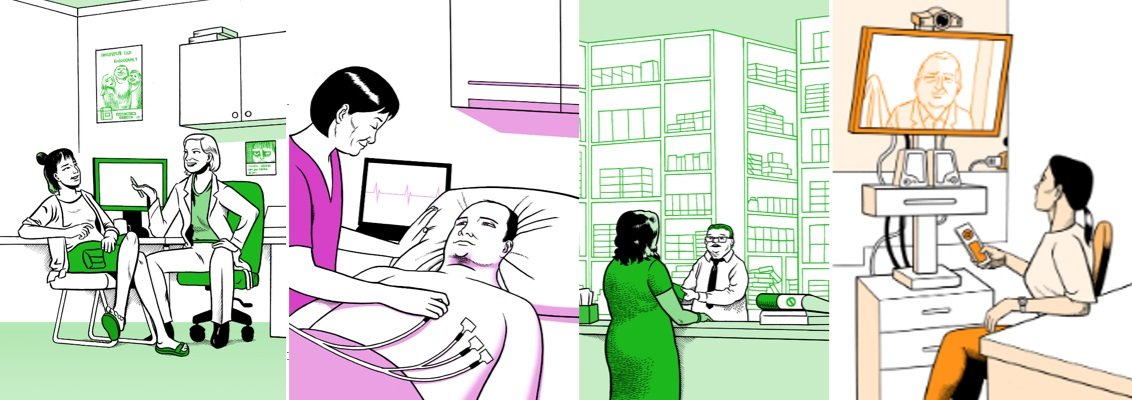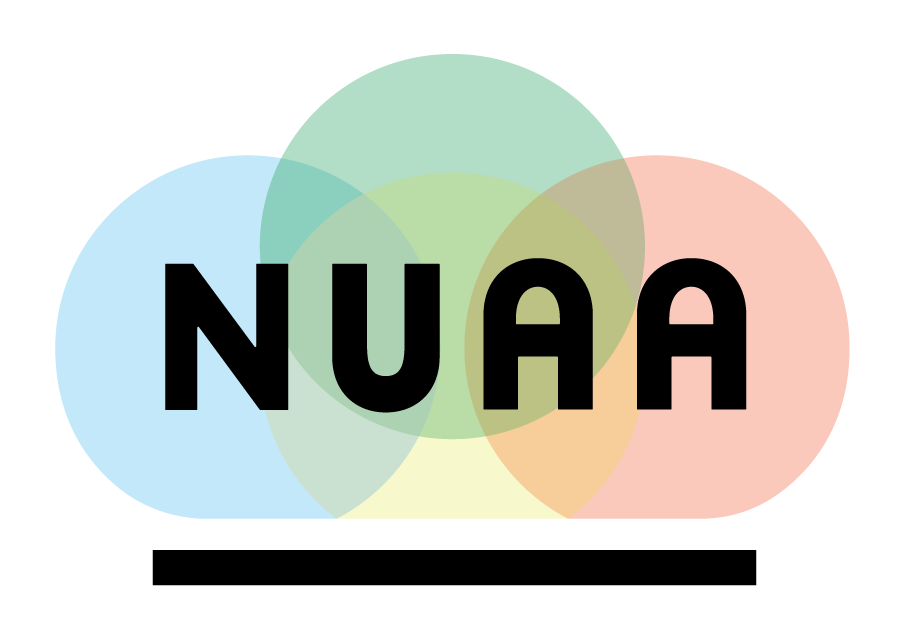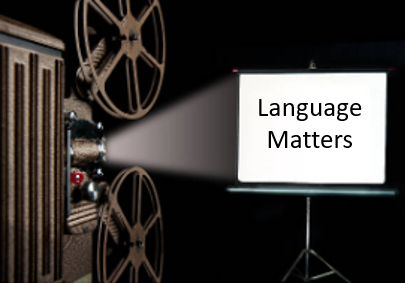
For Health Professionals
Resources to support the work of health professionals
Video resource:
Respect and a listening ear:
Quality health care for people who use or have used drugs
Addressing the stigma and discrimination experienced by people with living and lived experience of drug use in accessing health care within NSW has long been a priority for NUAA. NUAA worked in collaboration with Sydney North Health Network (SNHN) to produce a video resource as a practical tool for health professionals when providing health care to people who use or have used drugs or alcohol. The resource aims to raise awareness around stigma and discrimination and identify paths to building respectful relationships for better health outcomes. It draws on the lived experience of people who use or have used alcohol or drugs when seeking health care, alongside expert commentary by doctors working with the drug using community. The resource follows the findings of NUAA's 2022 report What helps and what hurts.
Created by NUAA in collaboration with Sydney North Health Network. SNHN is proud to have worked with NUAA to develop this resource.
Watch the full resource here…
Other resources
What helps and what hurts: perspectives on clinical care from people who use drugs and alcohol in NSW. (Dr Mary Harrod et al, NUAA, Research report commissioned by NSW Health’s Office of Alcohol and Drugs, 2022) This research project considers the experiences of people with living and lived experience of drug use in accessing health care within NSW through in-depth consultation with 38 representatives of NUAA’s diverse community. It also suggests potential solutions relating to stigma and discrimination.
Words and language matter
Language Matters. (NUAA & NADA, 2018) A guide that offers person-centred alternatives to stigmatising language.
Words Matter! (International Network of People Who Use Drugs & Asian Network of People who use Drugs, 2020) Guide to reducing stigma through better language choices - why and how.
How stigmatising language affects people in Australia who use tobacco, alcohol and other drugs. (Hester HK Wilson, Australian Journal of General Practice, Vol 49 Issue 3, March 2020) Journal article that looks at the role of spoken and written language in creating stigma, how that translates into personal experience and why it adversely affects health outcomes.
The Power of Words. (Alcohol and Drug Foundation, 2021) Practical guide to download and digital flip-book
Assessing and reducing stigma and discrimination in AOD
Stigma and Discrimination. [episode 1, episode 2, episode 3] (RACGP NSW&ACT and NSW Ministry of Health, 2023) Three episodes of the podcast series RACGP & NSW Health - The GP Edition.
Why Shouldn’t I Discrimination Against All of Them? (AIVL, 2011) Report on Stigma and Discrimination towards the Injecting Drug User Community
We live with it almost every day of our lives. (Jason Hargreaves, AIVL, 2015) Report into experiences of Stigma & Discrimination
AIVL National Anti-Discrimination Project. (Laura Liebelt, AIVL, 2012) Interim results on a survey of people who inject drugs, people on pharmacotherapies and/or those living with hepatitis C.
AIVL National Anti-Discrimination Project: Qualitative Research Report. [part 1, part 2] (Consultants GfK bluemoon for AIVL, 2010) Demographic-specific focus groups were held with people in the broader community and medical professionals to ascertain their attitudes to people who use drugs in order to increase understanding of the level of stigma in Australian society and identify paths for reducing prejudice.
Lived experiences of stigma and discrimination among people accessing South Western Sydney Local Health District Drug Health Services. (Adrian Farrugia et al, The Australian Research Centre in Sex, Health and Society, La Trobe University, 2019). Findings and recommendations from a qualitative research project on experiences of stigma for people accessing inpatient withdrawal management (detox) services in South West Sydney Local Health District.
Health Professionals’ Attitudes Towards Licit and Illicit Drug Users: A Training Resource. (National Centre for Education and Training on Addiction - NCETA, SA, 2006) Teaching materials, activities and measurement tools developed to support educators in assisting health professionals to assess and change negative attitudes around the "deservingness" of people who use alcohol and other drugs to receive health care.
Reducing stigma and discrimination for people experiencing problematic alcohol and other drug use. (Dr Kari Lancaster et al, Final report April, 2017) A report for the Queensland Mental Health Commission looking at experiences of S&D and its impact, particularly in relation to accessing treatment, as well as the potential for legislation, settings and sectors to be stigmatising.
Stigma and discrimination among the NSW Health and NGO workforce towards people experiencing harm from use of alcohol or other drugs. (Zest, Commissioned by NSW Ministry of Health, 2021). Research into stigmatisation and discrimination towards people experiencing harm related to AOD use by selected segments of the NSW Health and non-government organisation (NGO) workforce. Identifies mechanisms that could reduce stigmatising and discriminatory attitudes, beliefs and behaviour in that workforce.
The National Drug Strategy, harm reduction and human rights
National Drug Strategy (Australian Government Department of Health and Aged Care, 2017) This 10-year framework is the federal government's response to alcohol, tobacco and other drug use. It details the priorities, actions and strategies that aim to reduce and prevent harmful effects. Underpinned by Australia’s officially adopted policy framework of harm minimisation (supply reduction, demand reduction, harm reduction).
Being trauma-informed in the workplace. (Blue Knot Foundation, 2016) This 10-minute video is designed to help staff and volunteers employed in any capacity and service setting be aware of the possibility of trauma in the people accessing their service.
What is Harm Reduction? (Official website of Harm Reduction International, 2022). Explains harm reduction (an important part of Australia’s official ATOD response) and provides international and human rights perspectives.
Clinical Guidelines and Resources
Long-acting injectable buprenorphine (LAIB) for opioid dependence treatment (NSW Health, 2024)
Management of Withdrawal from Alcohol and Other Drugs — Clinical Guidance & Handbook (NSW Health, 2022)
NSW Clinical Guidelines: Treatment of Opioid Dependence (NSW Health, 2018)
Management of Patients with Psychostimulant Toxicity: Guidelines for Emergency Departments (Linda Jenner et al, Australian Government Department of Health and Ageing, 2021)
Opioid Dependency Therapies – Webinar for primary care providers. (Australian Government Department of Health and Ageing, 30 June 2023) Webinar to inform primary health care providers about the changes to how ODT medicines will be listed on the PBS Schedule and what it means for their patients. A panel of experts features senior representatives from the Department of Health and Aged Care, the Australian Alcohol and other Drugs Council and the RACGP.
Experienced support for Health Professionals
Drug & Alcohol Specialist Advisory Service (DASAS) is a free 24/7 telephone service that provides general advice to health professionals who require assistance with the clinical diagnosis and management of patients with alcohol and other drug-related concerns, including intoxication, withdrawal, Opioid Treatment Program, and treatment options. Triaged by AOD clinical nurse consultants or counsellors with follow-up by an Addiction Specialist. Call (02) 8382 1006 (Sydney metropolitan); 1800 023 687 (regional, rural and remote NSW).
RACGP Addiction Medicine Special Interest Group (Chair: Hester Wilson): The SIG is for GPs who have contact with drug and alcohol issues within their medical practice. The role of the SIG is to develop doctors' skills and knowledge set, including professional development, resource development, networking, research and advice to government. Call 1800 090 588. https://www.racgp.org.au/the-racgp/faculties/specific-interests/interest-groups
Opioid Treatment Accreditation Course (OTAC). OTAC delivers NSW’s accredited opioid pharmacotherapy treatment (methadone and buprenorphine based products) prescriber training at no cost to practitioners. Led by experienced senior clinicians at frequent, state-wide in-person and online sessions, the training program always includes a NUAA presentation to provide a living/lived experience perspective. In addition to detailing accreditation processes, listing upcoming courses, and taking registrations, the OTAC website hosts NSW prescribing regulations, clinical guidelines, and best practice resources, including clinical case webinars. It also outlines the pathway to prescribing as an unaccredited GP. Visit https://otac.org.au/
NUAA supports people with living or lived experience of drug use, no matter where they are with their relationship to drugs. Please actively support your patients to access the harm reduction resources on this website, including downloading and printing as necessary, or contact us on (02) 9171 6650. Our peer support phone service, PeerLine, assists people with a range of issues, including accessing harm reduction services and advice, treatment services, mediating with health professionals and other service providers and guiding people through complaints processes. Call 1800 644 413 from 9.00 am to 5.00 pm Monday to Friday (excluding public holidays).





